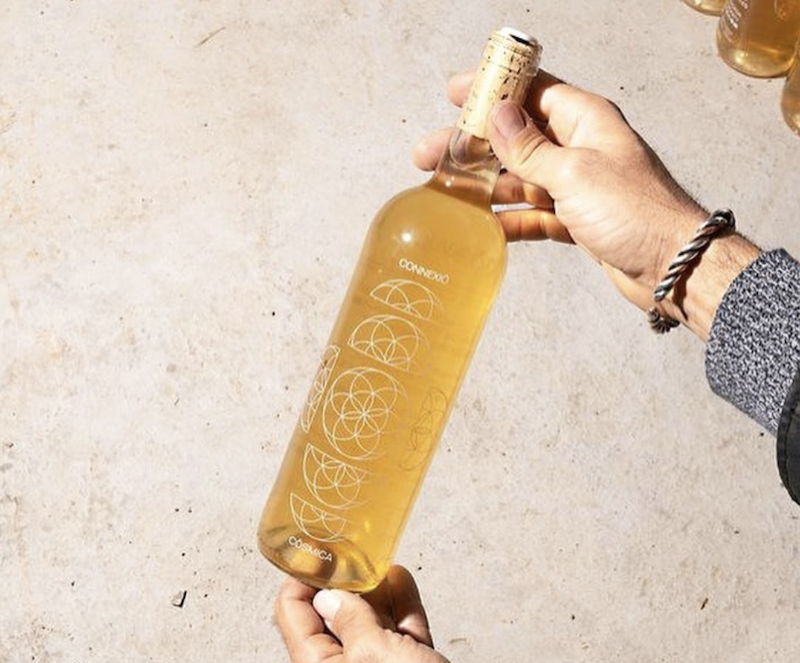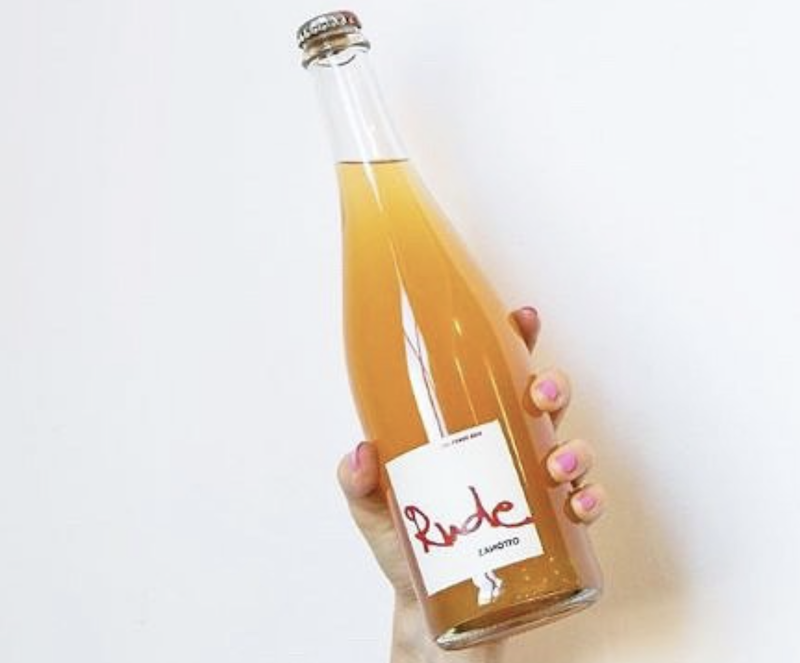Wine is one of those categories in a confusing state of tradition and innovation. It’s a centuries-old industry often guided by the strictest standards and regulations, while at the same time undergoing constant renovation and leading new trends. Even those who don’t drink or aren’t of legal drinking age generally recognize red and white wine, and a few years ago rosé (pink wine) came into popularity, but today, there’s more to contend with.
What is orange wine? Is it made from oranges? (No.) Are all-natural and organic wines vegan? With vegan wine sales on the rise by 51 percent within the past two years, now’s the time to embrace your inner sommelier. We’ve compiled the basics of the latest wine trends to help you determine what’s vegan, hold an intelligent conversation, and perhaps pick out a new favorite vegan wine.
How is orange wine made?
To be exceptionally clear, orange wine is not made with oranges. Orange wine is simply a wine made with white grapes that are fermented with their skins, resulting in a wine with an orange hue. Red wine is also made with skin contact, but with black grapes. Rosé, meanwhile, is made when black grape skins have contact for a short amount of time, resulting in a pink hue. Finally, white wine is made with no skin contact at all. Orange wine is fashionable at the moment, but it is not new. In fact, wine producers have been making orange wine for hundreds of years. Orange wines are just as likely to be fined with animal products as any other wine, so it is important to check labels, reference Barnivore, or contact the winery to ensure the bottle you’re pursuing is vegan.
Our vegan-friendly orange wine pick: Field Recordings Domo Arigato (Mr. Ramato), Central Coast, California.
How to define the natural wine terms
Organic
“Organic,” “natural,” “clean,” and “vegan-friendly” are super trendy marketing terms at the moment, but what do they mean? “Organic” is a highly regulated term and refers to wines that are made with organically grown grapes and without added sulfites. If the label says “made with organic grapes,” then the grapes were farmed organically, but the winemaker could still have added sulfites during production. Most countries have specific rules for organic certification and regulate the use of this term on labels. However, the use of animal products during the fining process is generally not prohibited, so an organic wine is not necessarily a vegan wine. That being said, most producers using organically grown grapes tend to avoid using animal products as fining agents, so if you are looking for a vegan-friendly wine, the organic wine section is a good place to start and narrow down your search.
No added sulfites
Many wine labels these days say “no added sulfites.” What are sulfites and why should you care? Sulfites, or sulfur dioxide, occur naturally in wine and food. In fact, it is impossible to have a completely sulfite-free wine. But adding additional sulfites is widely practiced during winemaking because they act as a preservative by minimizing oxidation. However, sulfites are often blamed for a whole host of side effects, including headaches. According to the Food and Drug Administration (FDA), though, only about one percent of the population is actually sensitive to sulfites. There is no evidence that added sulfites are the culprit for wine headaches in the rest of the population. Generally speaking, slapping this term on a wine bottle is simply a way to justify a price markup in the consumer’s mind. Our advice: don’t fall for it.
 Only the Wild Ones
Only the Wild Ones
Natural
“Natural” and “clean” are less clearly defined than organic, and there are no laws regulating the use of these terms. In general, though, natural wines are wines made with minimal intervention. The wine is fermented with native yeast, there are no additives (including sulfites), and the wine is usually unfined and unfiltered. This means that natural wines are almost always vegan-friendly. Similarly, a wine that is marketed as “clean” is often organic usually made with minimal intervention, and usually vegan-friendly. If you want to enjoy a glass or two of natural or clean wine it is important to remember that just because it’s “clean” does not mean it is a wellness product. It is still alcohol, after all, so regardless of what the advertising promises, you can still get a hangover if you drink too much!
Not all organic, natural, and clean wines are vegan-friendly, and there are many vegan-friendly wines that are not organic, natural, or clean. Confused? Don’t be. Take a breath and sip a glass of Avaline Rosé, Vin de France, France. It’s vegan, organic, and deliciously pink!
BECOME A VEGNEWS VIP: Get exclusive product deals, freebies, and perks galore!
Pét-Nat
Another trendy wine trend on the rise is Pét-Nat, which is short for Pétillant Naturel, French for “Naturally Sparkling.” Like orange wine, Pét-Nat is not new—it has been around for hundreds of years—and it was likely discovered by accident. Pét-Nat is a method of making sparkling wine that is referred to as the Méthode Ancestrale, which means “Ancestral Method.” To make Pét-Nat, a winemaker takes wine that has not yet completed fermentation and bottles it, sealing it with a crown cap (the same type of cap used in beer). The carbon dioxide from fermentation is trapped in the bottle, creating bubbles. The resulting wine is somewhat unpredictable because there is no further intervention by the winemaker. You won’t know what you’re getting until you open the bottle. Pét-Nat is usually a bit rough around the edges and can come with a bit of funk. Since Pét-Nat is made with minimal intervention, it is usually vegan-friendly. Curious? Try Onward Petillant Naturel Malvasia Blanca, Suisun Valley, California.
All of these trendy wines broadly represent a more natural approach to winemaking that does not use animal products during the fining process, but you should still check to ensure that your wine is vegan. Wines that market themselves as natural, organic, or clean also tend to provide more information to the consumer on their labels. For those of us who leave animals off our plates and out of our wine glasses, this is something to celebrate. Cheers!
For more on vegan vino, read:
JUMP TO ... Latest News | Recipes | Guides | Health | Shop
Here at VegNews, we live and breathe the plant-based lifestyle, and only recommend products we feel make our lives amazing. Occasionally, articles may include shopping links where we might earn a small commission, but in no way does this effect the editorial integrity of VegNews.












